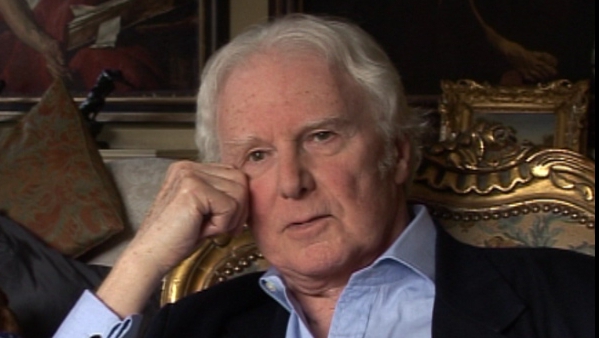NEXT STORY

Potential pitfalls in preparing an exhibition
RELATED STORIES

NEXT STORY

Potential pitfalls in preparing an exhibition
RELATED STORIES


|
Views | Duration | |
|---|---|---|---|
| 51. Titian's Assumption of the Virgin | 286 | 02:22 | |
| 52. Modern transport robs the traveller of the joy of discovery | 204 | 04:14 | |
| 53. Anthony Blunt and Johannes Wilde | 273 | 06:00 | |
| 54. How The Courtauld grew in prestige under Anthony Blunt | 250 | 04:58 | |
| 55. Notable alumni of The Courtauld | 225 | 01:13 | |
| 56. Working to fund my PhD | 201 | 04:42 | |
| 57. Too late to return to academia | 197 | 04:42 | |
| 58. Potential pitfalls in preparing an exhibition | 176 | 02:37 | |
| 59. Lost in translation: how not to compile a catalogue | 188 | 01:50 | |
| 60. Temperamental differences and a damaged Delacroix | 188 | 05:55 |


And then, of course, it was to discover that it was far too late to go back to scholarship, that there really wasn’t any point at that juncture of trying to get a doctorate or working on a thesis and all that that involved, because by the time I’d got it, I would have been so old I would have been unemployable.
Well no... Anthony… I talked, of course, to Anthony about it, and his view was that I would be entering the university field with my doctorate at the same time as people who were 15 years younger than me. And that whatever happened in my professional career, I would never really catch up with the delay, and I would never earn enough... and to be 40 and earning the same money as somebody of 25 is not a happy situation. And so he dissuaded me. And I… well, I then earned my living by my wits as much as anything, which I actually hated... being a dealer, which was the only thing open to me. Scholarship was closed. You know, there was no career in teaching or museum administration or anything like that. In those days, you were… how can I put it? Sullied by having worked in the trade. Christie’s or Sotheby’s was not a step up. Christie’s or Sotheby’s was an end in itself, unless you left after two years.
I’d had an assistant while I was at Christie’s, a man I was very fond of, called Ian Lowe. And Ian stayed for pretty for well exactly two years and then went on to get a job in the Ashmolean. That’s what I should have done. But Ian had a… he had a kind of steely determination about him, that he was going to Christie’s to learn as much as he could, that could be learned at Christie’s, and then move on. And he stuck to his plan. Looking back on it, that is what I should have done.
But I actually… I… what my career boiled down to was that, with the assistance of a rather powerful American friend called Joe McCrindle, who was on all sorts of museum boards and gallery boards, and was himself a very considerable collector, I began to get… oh, how can I put it... attachments as dogsbody to various museums and galleries. Very useful to have somebody in London who knows what the London trade is about, because if you’re in Washington, even though you can get a plane over and a plane back and all the rest of it… if you hear about a picture… somebody offers you a picture from London, and you want to know more than you are being told, and you can send me to go look at it, then I can report on condition and restoration and reputation of the dealer and the reputation of the picture and so on and so on, and so I had lots of these attachments who paid me an annual… a small annual stipend. And all the stipends added up into a reasonable income. And it meant that I went to America four or five times a year. It also meant, which is much more enjoyable, that I trundled around Europe, because pictures appear in Paris and Berlin and Frankfurt and elsewhere. They don’t just appear in London.
Born in England, Brian Sewell (1931-2015) was considered to be one of Britain’s most prominent and outspoken art critics. He was educated at the Courtauld Institute of Art and subsequently became an art critic for the London Evening Standard; he received numerous awards for his work in journalism. Sewell also presented several television documentaries, including an arts travelogue called The Naked Pilgrim in 2003. He talked candidly about the prejudice he endured because of his sexuality.
Title: Too late to return to academia
Listeners: Christopher Sykes
Christopher Sykes is an independent documentary producer who has made a number of films about science and scientists for BBC TV, Channel Four, and PBS.
Tags: Christie's, Sotheby's, Ashmolean Museum, Anthony Frederick Blunt, Ian Lowe, Joseph F McCrindle
Duration: 4 minutes, 42 seconds
Date story recorded: April 2013
Date story went live: 04 July 2013